Sheffield United: Exactly 50 years ago, the legendary Tony Currie arrived at Bramall Lane
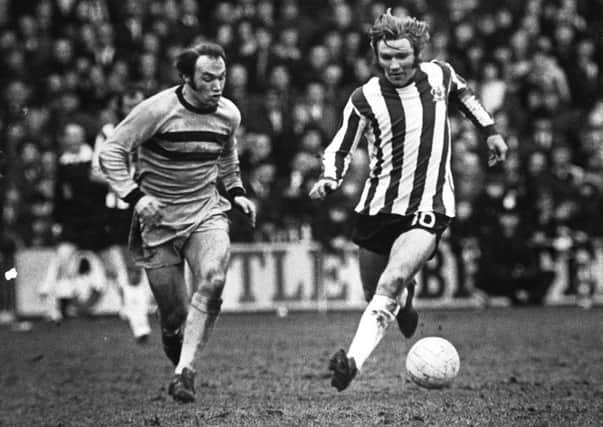

Tony Currie, officially the finest player ever to represent Sheffield United. But, as he prepares to celebrate another landmark moment in his long and distinguished career, the former England international sounds a little coy.
“I’m always humbled to talk about things like this, words can’t express my feelings. But I prefer paying tribute to some of the brilliant lads I worked with and have come across since. Because that’s what makes our club what it is; the people, the fans. I love it from the bottom of my heart.”
Advertisement
Hide AdAdvertisement
Hide Ad

Today marks the 50th anniversary of Currie’s arrival in South Yorkshire. Exactly half a century since United acquired the services of a teenage centre-forward who, despite turning professional only a year earlier, was destined to become a household name. Currie, who commanded a fee of only £26,500 when he left Watford in 1968, made another 376 appearances after scoring on his debut when FA Cup holders Tottenham Hotspur visited Bramall Lane. That goal, one of 68 he would claim in United colours, marked the beginning of a relationship which still endures to this day. However, it transpires the Currie supporters of a certain vintage watched tie opponents in knots was a very different beast to the one who, behind the scenes, found himself in awe of his new team mates.
“People wouldn’t think it, because of the way I was on the pitch, but I was shy and introverted,” he says. “I still am in some ways but I’ve come out of my shell over the years. During games, though, I was different. Why that was, I don’t know. Maybe it was the supreme confidence I had, that might be what it was, but I was like two different people.”
“When I first arrived, I never realised what it would be the start of,” Currie continues. “I can remember coming up even now. I got the train from London, John Short, who was our coach back then, and his daughter picked me up at the station and it was absolutely tipping it down. For some reason, we stopped at the garage which is still near the ground but it was a dingy thing with a bid old canopy back then. Across the road was Archers Sports, where we got all our kit and boots. Then, it was off to Montgomery Road, Nether Edge, where I went in digs.
“It was a huge change for me, the first time I’d been away from home and London. We had a really big family around us there, aunties, uncles and all of that, then I was on my own. I was young and a very different person back then.”
Advertisement
Hide AdAdvertisement
Hide Ad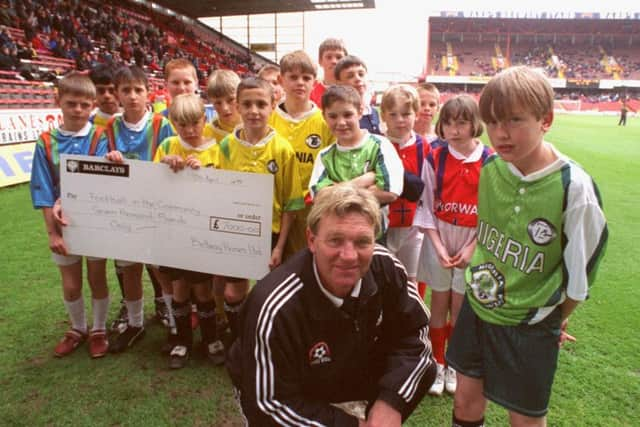

Currie was an entertainer as well as a footballer; one of the first to grasp that folk who paid hard-earned money to file through the turnstiles deserved something more than rigid tactics, deadly serious demeanours and boring nil nil draws. The fact he excelled in an era of proper hatchet men, when some tackles would today have carried a charge of GBH, is testament to both his technical prowess and bravery. Qualities which, together with Badger, Hemsley and the late Alan Woodward, helped achieve promotion to the top-flight in 1971. A group of wonderful players and watertight mates.
“You’ve got to entertain, you’ve got to give people something to get excited about and enjoy, that’s what football is for. Okay, with people like Chopper Harris, Tommy Smith and Peter Storey around, there were times when you had to dig in. You had to watch your legs, not think about a piece of skill or a trick. But you should look forward to and take pleasure from football. That’s the whole point, isn’t it?”
Currie, now aged 68, actually started-out as a centre-forward before, in what proved to be an inspired move, being handed a deeper lying role.
“I came up as a striker but got moved into midfield. I can remember thinking ‘this will do for me.’ Because I enjoyed passing the ball and had some vision, it suited me perfectly. I loved it there.”
Advertisement
Hide AdAdvertisement
Hide Ad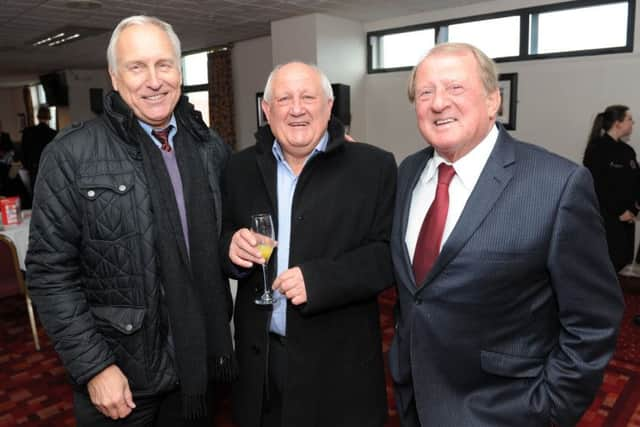

Currie loved it at United too but, in 1976, was sold to Yorkshire rivals Leeds. Three years later, he joined Queens Park Rangers, captaining Terry Venables’ side in an FA Cup final replay against Spurs, before announcing his retirement following spells with Toronto Nationals, Southend and Torquay.
“If I could, I’d never have left Sheffield United. I loved it there, I love it now. I get a shiver thinking about the spirit we had back then, how we were all great mates and still are now, there’s the same atmosphere among the current squad now. I turned down the offer to go to Manchester United and replace Sir Bobby (Charlton), I signed a seven year contract and...”
Currie’s words tail-off as he discusses his transfer to Elland Road. But revisiting a difficult chapter of his lifestory provides an opportunity to make a surprising admission; that the proudest moment of a career which also spawned 17 England caps actually came after he had hung up his boots.
“The thing I’m most proud of, and this might sound strange to some, is the community work,” Currie, who became United’s Football in the Community coordinator in 1988, reveals. “After four years, when the PFA funding finished, we had to generate our own money but the soccer schools, the holiday camps and the birthday parties, they were so popular and if the club had given us another room would could easily have down two a night. I remember people like Ben Starosta, Jordan Slew, George Long and others being there. Others who didn’t go on to be footballers but I bet lots of them are fans now. That’s the thing, looking back, that I’m most proud of. The fact that hopefully, because of what we all thought of the club back then, still do, lots of the kids who came on them will be say in the stands today.”
Advertisement
Hide AdAdvertisement
Hide Ad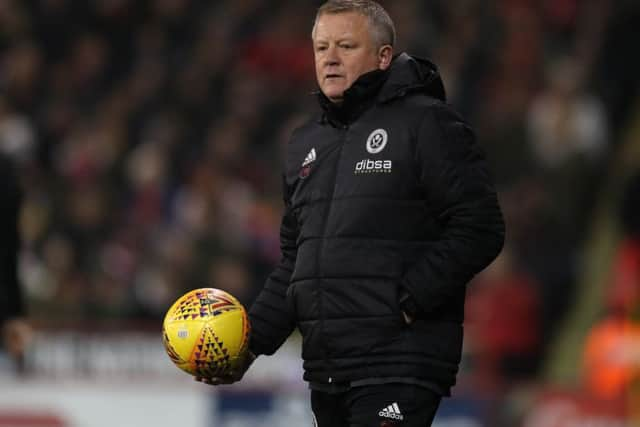

Well-recompensed in relation to the average working man and woman - the mean wage in 1970 was around £32 a week - Currie’s generation received nothing like the riches showered on their counterparts today. Internationals such as Harry Kane and Gary Cahill are unlikely to be found, Currie laughs, ekeing-out a living on the holiday camp circuit when they retire.
“I got offered a job, I think it was on about £100 a week if I remember rightly, which was a £100 a week more than I was earning at the time,” he explains. “It before I got the community job working at United. There was a guy organising soccer schools in resorts all over the country and I said I’d do that.
“I got promised the car of the year, the Renault Nine, and got a Fiat Panda instead. I would be in Great Yarmouth one morning and then down to Minehead or wherever the next. There was one ball, ten bibs and I never knew how many would turn up, none, one or 50, we had 50 asides at times on pitches where, if you shot wide, the ball went into the ocean and that was that, I had to go and buy another one. It was the hardest thing I ever did. You couldn’t plan or organise anything and, very often, the accommodation I’d been told would be available wasn’t.”
Currie, who a decade ago became United’s official ambassador, was voted the club’s greatest every player at their 125th anniversary celebrations in 2014. Although he did not earn a barrel of money, Currie’s spellbinding skills, mesmerising movement and ridiculous repertoire of passes secured something far more valuable instead.
Advertisement
Hide AdAdvertisement
Hide Ad“I love the people in Sheffield and I think they respect me,” he says. “It gets stronger over the years as well and that is everything for me. The club, what can I say? It’s the people, all down the years, involved that makes it what it is. I’m not just talking about players, managers and coaches, I’m talking about fans too. I’m so happy to see what Chris (Wilder) is doing now with the team, I’m so excited to watch the boys now, and long may it continue. Because Sheffield United means the world. It’s a part of me.”
THE STARS PAY TRIBUTE TO TC:
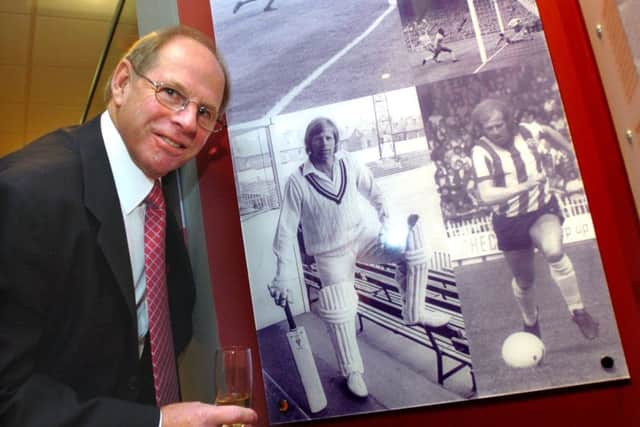

Chris Wilder (Sheffield United manager and lifelong fan): “Every time I see him I just say ‘How are you best player?’ That tells you everything because this club’s had some good ones but he is the best. He’s not from this part of the world but it’s been his home for 50 years. I’ve known him for a long time and even though I didn’t get the pleasure of watching him personally, my grandad used to talk about him all the time. Hopefully what we are doing compares, in some way, to the success they had in the Seventies. TC was at the heartbeat of that. I really like him off the pitch too, he’s a great guy, a real funny guy. There was a disabled supporters dinner not so long ago and there he was on a Monday night. His standing at the club and his support of it is fantastic. The work he’s done, the people he’ll have turned into United fans through the community scheme, that’s a legacy we should all respect.”
Len Badger (Former Sheffield United player, supporter and team mate): “I always have a laugh with Tony whenever I see him. I wind him up. Joking aside, what a player TC was. He was magnificent, something else. To play alongside him, well, what can I say? It was an absolute joy, a privilege. TC was that good, so talented, he could have played anywhere on the pitch and been brilliant. Seriously, that’s how much talent he had. You could have put him in goal and I reckon he’d have been making save after save. What I love about TC was, not only his sheer quality but fact he was also such an entertainer. I remember one game when we were winning and he got the ball, stopped, and blew the crowd a kiss. Then he was off again, doing what he does best. When we were out there together, he’d always be shouting ‘Just give me the ball.’ There’d be four or five players around him, you’d ping it in and he’d leave them standing there. The fact he’s been here so long tells you how much he loves this club. I love the guy to bits.”
Ted Hemsley (Former Sheffield United player and team mate): “Tony was world class. It’s as simple as that. The effect he had on me, when I saw him there with us in the tunnel, was phenomenal. We had some great players back then and some real pace at the back too. The fact someone like Alan Woodward, because what a player he was, used to say TC made him a better player tells you all you need to know about how good he was. And when I say world class, I don’t use that term lightly. Really, that’s exactly what he was. Tony is a great mate of mine, that’s what we were back then, team mates and mates. I used to hear folk say he was arrogant but what a load of rubbish that was. He was arrogant, in the right way, on the pitch and you wanted him to be. Off it, you won’t meet a nicer bloke and he was brilliant. A great member of what was a brilliant dressing room.”